|
This is the sort of book that just can’t lose in today’s market. A mostly young, tragically hip (literally), almost all-minority cast with gender politics heavily threaded through. The only thing its missing is a heavy queer angle on top of it.
So, yeah, how much social commentary do you like in your genre fiction? If your answer is “oodles”, you’ve picked the right book. Though to be fair, Tiny Threads does a very credible job of passing for a scary story for a significant portion of its page count. Anyway, in the The Devil Wears Antonio Mora aka Tiny Threads, a young woman makes the trek all the way from Jersey to sunny Cali to work for a famous designer. It is supposed to be her dream job, her dream life, etc…until it all turns into a nightmare. The question is this, is she hallucinating terrors because of all the drinking she’s doing because of work stress or is she in real danger? Read and find out. It’s a quick and entertaining read, compelling enough even if you don’t particularly care for the characters. The real star of the show here is, of course, that gorgeous cover, but the fun itself is fun enough. Thanks Netgalley.
0 Comments
It's every so slightly confusing to have an author write two books in vaguely the same vein with "devil" in the title. I've read the second one first, after making sure they were not connected. Rest assured, the two books are indeed standalones, at least as of now. Both are very good and well worth checking out, though this one paled a bit in comparison with Russel's superior other devil of a book.
Still, this was a terrific read about an ambitious psychologist determined to prove that behind all of men's evil there is a eponymous devil's aspect, particularly impressive for the way for its setting/settings: pre-WWII Czech insane asylum. Very moody, very atmospheric, the dangers of the inmates juxtaposed to the dangers of the war to come. Very well done. The novel itself read long. It's a long novel, but it actually read long. Enjoyable but long. Okay, that's enough about its length. There's also the fact that the entire plot hinges on a very old and tired trick. But hey, it works, and it's good, so what more can you ask for? Recommended both the book and the author. Enjoy! I think this may have been a masterpiece. Or at least a masterful work of fiction. Most auspicious not just for a debut but for any novel, for any author.
The novel takes place in 1961 Dutch province, middle of nowhere, where the protagonist, Isabel, lives alone in a house too large for one person and a life too small for any one person. Yet she hangs on to it tenaciously for it is all she has and all she knows. With nothing but her two brothers for occasional visits, an uncle nearby, and a maid for assistance, Isabel passes her days, all the same versions of the same day, until she meets Eva, the girlfriend her brother brings by and leaves behind. Isabel hates everything about Eva, but she cannot look away from her. Now that her life has been disrupted, now that her peace of mind has been taken away from her, what will she find instead … in a woman who is as different from her as different can be? Soon things begin to go missing, the claustrophobic confines of the place crank up the suspense, an obsession spirals out of control. And then the novel slips into the past, a brief but crucial journey, to turn everything you know about it around. And it’s all so beautifully clever that you just want to stand up and applaud. And it gives the story and its characters some terrific dimensionality that you immediately know the ending you want, the ending they need. So yes, the plotting is very clever, but the writing … it stands to mention just how stunning the writing is. Evocative, vivid, profoundly engaging, this is the book you’ll read with all your senses, a heartbreaking, mind whirling story you won’t want to put down. The relationship between the two main characters, the halting, unfinished sentences, the tentative reach, the silences, and all that hides and can be found in ellipses … it’s a thing of beauty. It’s also might be one of the most sensual, sexy books I’ve ever read. All in all, a gorgeous book. The sort of thing that rekindles one’s faith in written word. I absolutely loved it. Recommended. Thanks Netgalley. You can’t always predict what gets famous or why. This novella of a torrid love affair between two women had somehow made it. Something about it struck the chord with the general audience and a slew of celebs of screen and written word as the many pages of praise preceding the story AND the numerous quoted letters to the author in the afterword attest so loudly to.
Apparently, people found this sort of story relatable, be it their coming out book or what. It boasts a sort of beyond-queer appeal. Outside of all the noise, if you just take the story as is, it’s an easy one-sit read about a woman in her twenties who moves to NYC and begins an affair with a butch nineteen years her senior. The butch is in a ten-year relationship with a woman, but this is the first lesbian affair for the younger one. Cue in drama, heavy heavy drama. Bucketloads of drama. In some ways exactly the sort of drama ugly clichés about lesbian relationships might be talking about. Unnecessary, ludicrous, overbrlown drama. And yet, something about this tiny book—the confusion of it all, likely, of figuring out one’s sexuality and one’s needs and wants in a relationship—had really connected with the audience over the years, hence this ten-year anniversary reprint from a major publisher. Well, look at you go, tiny book. It is objectively compelling, so kudos there. Otherwise, your level of emotional engagement will depend entirely on your levels of personal confusion. Thanks Netgalley. There’s a very good chance there’s something in Moreno-Garcia contract that has her writing one romancey garbage for each two or three solid thrillers. Or else, it’s just her own weird preference. But inexplicably, for a writer who is so immensely talented and so good at producing terrific supernatural and otherwise thrillers, every so often she feels the need to put out crap like The Beautiful Ones or The Return of the Sorceress or The Lover or now this.
Maybe she is trying to branch out or prove to herself and the world she can do other genres. Sure, that’s admirable. But it also seems like a monumental waste of talent, especially talent that has a very specific genre lean. And yes, this is also from a reviewer who dislikes fantasy and romance as genres, so take that under consideration. There might be some people out there who only know the author through her romance work. Pity that, but to each their own. Anyway, onto this book: The Seven Veils of Salome is a book I would have never picked up without Moreno-Garcia’s name on it. The laughably cheesy bodice ripper cover alone would have put me off. But it did have her name on it, and I do very much love books about movies, so I read it. And here’s the thing: yes, the book by and large lives up to the cheesiness of its cover—it’s all about young love, past and present. It’s a romance, but a kitchen sink of one, because the author took a rather manic, let’s-see-how-many-perspectives-we-can-cram-in-here approach. There’s no need for this—this isn’t World War Z—but it’s there anyway. When it reality there ought to be only three POVs. One of them is that of Salome. Because Moreno-Garcia is ambitious enough to cram deeply historical fiction into an already historical fiction. So not only do you get to spend time on movie sets in 1950s but also in palaces of antiquity. It’s all very, very girly with strong vibes of women’s lit. But then there’s the undeniable fact that Moreno-Garcia is good enough of a writer to even make that work and be compelling enough. So the book ends up being a perfectly readable if frustrating mess. Books about movies are all the rage now. The weird thing is that the author just put out a novel about a movie. And Silver Nitrate is an amazing novel. This is like doubling down to show that she can write about movies for everyone. And I suppose she can, the question is more along the lines of, should she? Either way, it’s entertaining and certainly much more intelligent than that terrible cover suggests. Now, with that nonsense out of the way, hopefully, the author can return to form. Thanks Netgalley. I love Saga books. I just don’t know what the point of them is anymore. It once left off on a bitter note, then took years to regroup and come back, and I’ve not been able to ascertain why besides the obvious reason: commercial.
And maybe it’s because I don’t like soap operas. I really don’t: Saga is the only one I ever did. Or because I don’t like serials: I don’t, with few minor exceptions here and there. I understand the concept of getting emotionally involved with characters over the years and the appeal of being able to follow their trajectory (seemingly indefinitely), but there doesn’t seem to be much point to it, plus, honestly, it just seems kind of lazy of the creators. And the creators here are so talented: a great storyteller and an amazing artist. They can do whatever they like, instead of spinning the same yarn over and over again into inevitable nothingness. It’s lazy of readers too, to stick with the same story, instead of finding more. There’s more art, skill, originality, and creativity in standalones. And yet, it goes on. Even I’m guilty of it, reading yet another volume of Saga. Because it’s quick and pretty and I do like the characters. And it is comforting to know what to expect. Let’s face it: Saga has thus far only shocked us once. It wasn’t nice. It did disservice to the series. And now it’s all the same, over and over again. A pretty, commercial vehicle, working the formula, hugging the curve tightly, never to return to its former greatness. And yet, for all that, a fun read. I’ve been away from thrillers for a while. On purpose. Just got tired of all the formulaic crap flooding the market. But then I liked Goodman’s work, so I figured I’d try it again, see if I can be pleasantly surprised. And lo and behold, I was!
This isn’t to say The Bones of the Story isn’t formulaic. It’s formulaic as all get out. You know that checklist that all thrillers are working off these days? Yeah, this novel checks several of the boxes very prominently. Young people getting together and doing things that’ll sure to haunt them in the future - check. Those same people coming together 25 years later when the bodies start to drop – check. A remote Academia setting – check. An inclement weather trapping them together – check. What sets this locked campus mystery aside isn’t its originality, but its ability to work the formula well. Goodman not only writes very well, but she plots nicely, too. The story twists and turns and surprises plenty. Even though the party responsible was the one I’ve had my suspicions about all along, the motives were still a surprise. And that’s really all you can want out of a book like that – to play along with a puzzle, try to solve it, and be surprised in the end. So yeah, fun was had. Recommended. Thanks Netgalley. This one set on my TBR list for a while, and in all honesty, I maybe should have left it sitting there. But then I’ve been a fan of Lebbon for a long time and was curious what he’d been up to. Apparently, this climate disaster of a novel. Which objectively isn’t a disaster of a novel, but it does leave a lot to be desired.
Outside of occasional odd word repetition (which should have been dealt with in editorial), Lebbon is actually a very good writer. It’s what attracted me to his books in the first place. Literary, in my books, is the best horror, and Lebbon goes for literary. Character driven, well described, all that. What’s missing here is on the plot side of things. Droughts had turned a significant swatch of North America into a desert. It could use some rain. And, conveniently enough, the is a Rainmaker available. Only he doesn’t do that anymore and has done all he could to stop his daughter, who intertied his gift, from doing it too. As it turns out, when one makes the rain, they bring down more than just water. No idea why. None is this is really explained. The Rainmaking thing isn’t really explained either. The author chose to focus on the actual play-by-play of the chase (two chases, technically) that’s at the heart of this novel. It unravels in almost real time from multiple perspectives in minute detail. Lebon is good on detail, but at some point it becomes glaringly obvious that the entire novel is just people driving and shooting in the desert. It overrides everything, even the characters. Not to mention, the multiple perspective thing is drastically overdone with a dizzying amount of switches. People, tenses, etc. It’s way too much. It’s almost like there’s all this descriptive writing and narrative trickery to distract you from how thin the plot actually is. So, overall, it reads easily and quickly and is technically accomplished, but doesn’t really engage. Good writing goes a long way for me, but this was likely one of my least favorite Lebbon books. Interested to see how he does on the next one, where he goes from dust to snow. Thanks Netgalley. Some people go for zombies or vampires, but one of my all-time favorite themes for scary stories are movies. Silver Nitrate, baby, all the way.
So I was very interested in reading this book, but Netgalley didn’t have the right format, and then there was a wait at the library …and now I finally read it. And I don’t understand what all the negative reviews are about. Burn the Negative is fun. It’s fun in that popcorn, slasher way. Very dynamic, it reads like a movie. The author, much like his protagonist, has spent plenty of time reporting on genre movies, and it shows. The book is a thoroughly enjoyable ride loaded with movie references to nerd out over as we follow the story of a former child star who returns to LA after three decades away to cover the remake of the movie that ended it all for her (and so many others), only to find out that the nightmare she thought she left behind is still there, waiting for her., impatiently and deadly. Cue in the bodies and suspense and slapped-together investigation as she follows the trail of movie stub crumbs back to the source. Yeah, the ending was a bit of a cheat for conventional slasher fans, but the book was overall too entertaining to fault it on details. And read very quickly, too. I may even pun and call it winning ;) Recommended. Nice place ... But is it haunted? Now, there’s the question, the notion that’s been beaten to death, revived, and beaten to death all over again in genre fiction. It’s a cliché that can be measured in square feet. And it comes with its own real estate listing. A couple buys a place, idyllic on the outside, nightmarish on the inside. Soon, strange things begin to occur. Who’re you gonna call? Yes, this book even has a ghostbuster, of a sort. The main plot revolves around all those tried-and-true clichés but it is objectively a pretty decent take on them. I’ve been reading Coppel for a while now, not so much because he’s the best thing out there, but because he’s so reliable. Mediocre but reliably so, you always get exactly what you expect with him, pretty much. This book is no exception. In fact, it’s better than most of his work. So much so, I'm going to round up my rating. While not literary per se, his writing is very nicely paced, realistic with details, and humorous in banter. The plot is basic enough to explain: a family moves from West to East coast, gets a picturesque property in Northern Virginia, commuting distance to DC, and starts nesting. Only their next keeps getting weirder and weirder. You think you want extra square footage? Sure, yeah, but you wouldn’t want a self-expanding place to live it, that’s just creepy. So what pushes people out? What’s enough and what’s too much? Would a metal bed with restraints in the attic do the trick? No? Well, how about an antique chamber pot, poop and all? Fireless smoke? Okay, okay, here’s a doozy … what about an unshakable certainty that you and your family are not alone? Read on and find out what the family in the book does. It’s a fun, quick read. Recommended for genre fans. I'm surprised the title made it through the PC police. It's apparently offensive, more in some forms than others. One day, it may have to be redone as Madness. Until "madness" gets done away with, too. And then what, one wonders? |
AuthorWrite something about yourself. No need to be fancy, just an overview. Archives
December 2023
Categories |
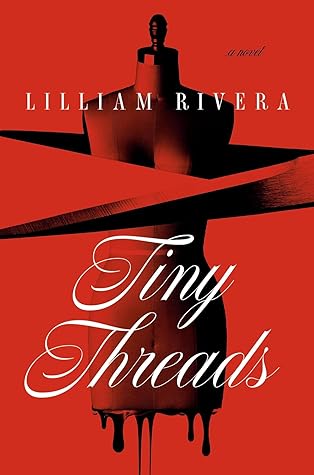
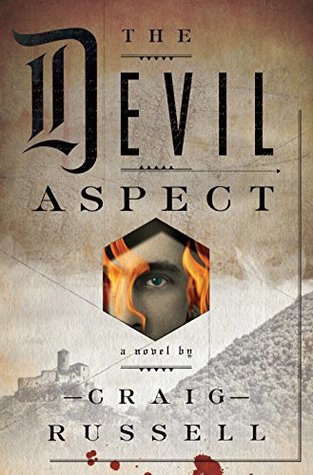
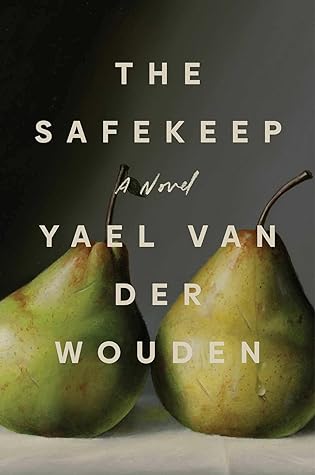
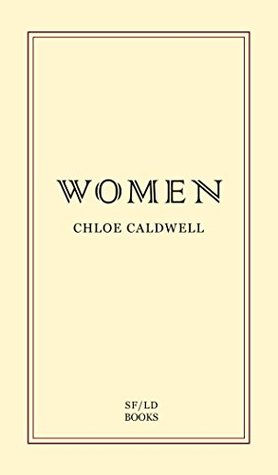
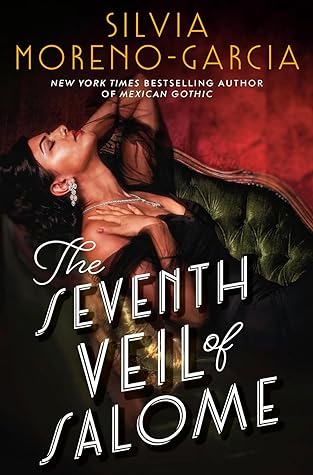
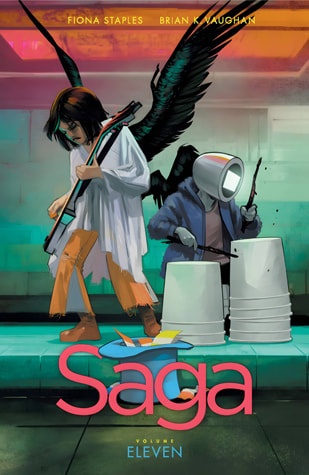
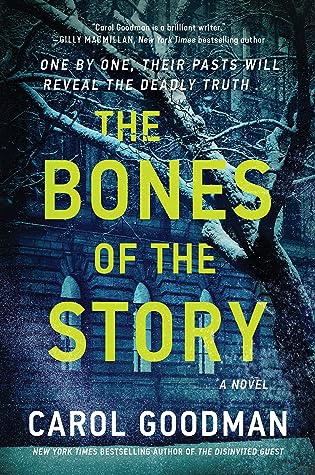
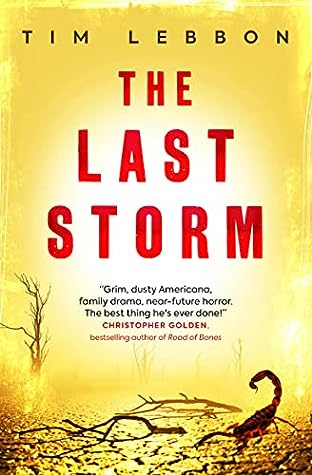
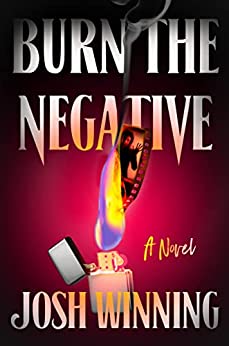
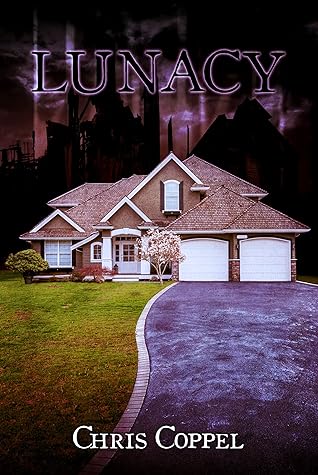
 RSS Feed
RSS Feed
